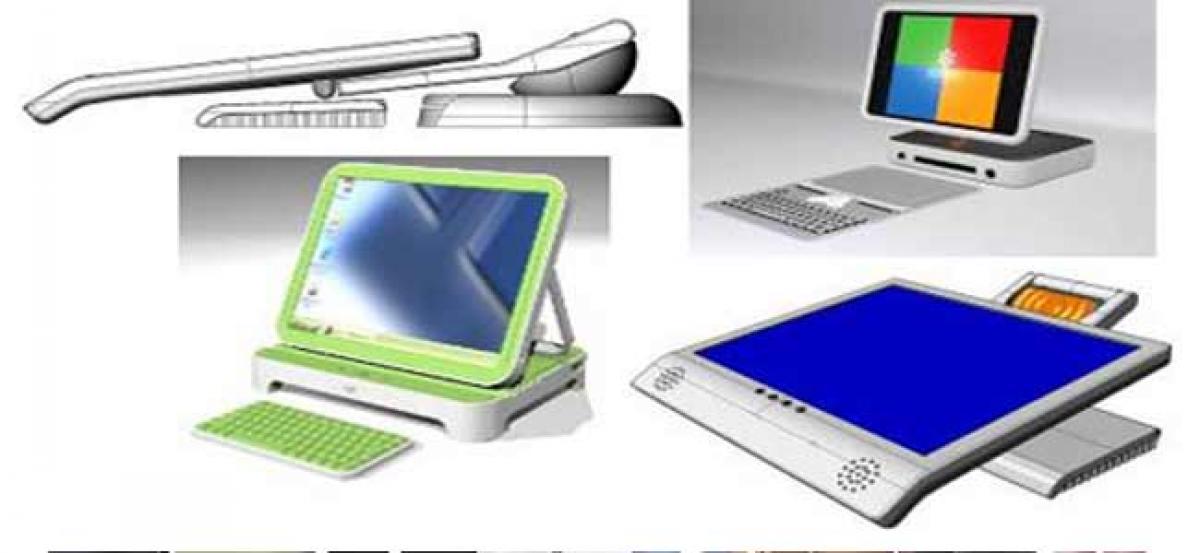Live
- Sensex, Nifty drift lower on profit booking
- Jagan treated cadres as ‘subordinates’, alleges Grandhi
- Mpower’s survey on edu loans
- IIP growth falls to 3.5% in Oct
- Easing food prices lower retail inflation to 5.48% in November
- Space allocation for packaging units at MSME parks on anvil
- Maha Kumbh: Yogi reviews preparations
- Gadkari on accidents: I try to hide my face in meetings abroad
- Abetment of suicide: Mere harassment not sufficient to find accused guilty says SC
- 6.79L homes to receive water under Amrut-II
Just In

With emerging technologies like Artificial Intelligence (AI), Internet of Things (IoT) and Big Data Analytics knocking at India\'s doors, the country needs to sow the learning seeds early -- in the classroom -- and China and Turkey can show the way, top global Intel executives have said.
New Delhi: With emerging technologies like Artificial Intelligence (AI), Internet of Things (IoT) and Big Data Analytics knocking at India's doors, the country needs to sow the learning seeds early -- in the classroom -- and China and Turkey can show the way, top global Intel executives have said.
The world has realised what is coming its way in the next 10-20 years and has already begun modernising classrooms at schools to prepare a technology-ready workforce.
"The Chinese and Turkish authorities have given kids IoT-enabled devices in millions of schools. Every student has a device connected to an intelligent whiteboard at the front of the classroom. There are teacher-controlled devices too. The curriculum is designed for that kind of environment. This is the future of education," Joe D. Jensen, Vice President, Internet of Things (IoT) Group, and General Manager, Retail Solutions Division at Intel, told IANS.
"Intel has installed 400,000 IoT-enabled connected devices for schools in Turkey, a million-and-a half in Chinese schools and another million to go in China in the next two years," Jensen informed. Technology can do wonders in providing a great educational experience and create a pool of talent for these disrupting technologies.
"In China, the newest innovation is that there are eight video cameras and a series of microphones in a classroom at certain private schools and colleges. The videos of the classroom activities are recorded daily. Parents can later log on and see the student-teacher interaction," Jensen told IANS.
For Lisa Davis, Vice President and General Manager, IT Transformation for Enterprise and Government at Intel, while India is at the cusp of dramatic changes in delivering next-generation education, it is also set to learn new ways to infuse technology in many other sectors. "Not just education, we are looking at the financial services, transportation, retail and health-care sectors too in India. The next big wave is coming in video surveillance and the security sector, and our teams are engaged with the stakeholders in the country," Davis told IANS.
Intel has also pushed the envelope towards creating a modern workforce in India. In April this year, Intel made a commitment to democratise AI in the country by training 15,000 developers and engage with not just businesses but also the government and academia to enable the adoption of AI.
Intel India has trained 9,500 developers, students and professors in the past six months.
The chip giant has collaborated with 40 academic institutions that are using the technology for scientific research and 50 public and private organisations across e-commerce, health-care, technology, defence, and banking and financial services. Intel India has also launched an initiative to strengthen the use of technology in the country's education ecosystem. It is collaborating with leading device manufacturers, education digital content publishers and education solution providers to build end-to-end solutions that promote the use of technology.
Nishant Arora

© 2024 Hyderabad Media House Limited/The Hans India. All rights reserved. Powered by hocalwire.com







